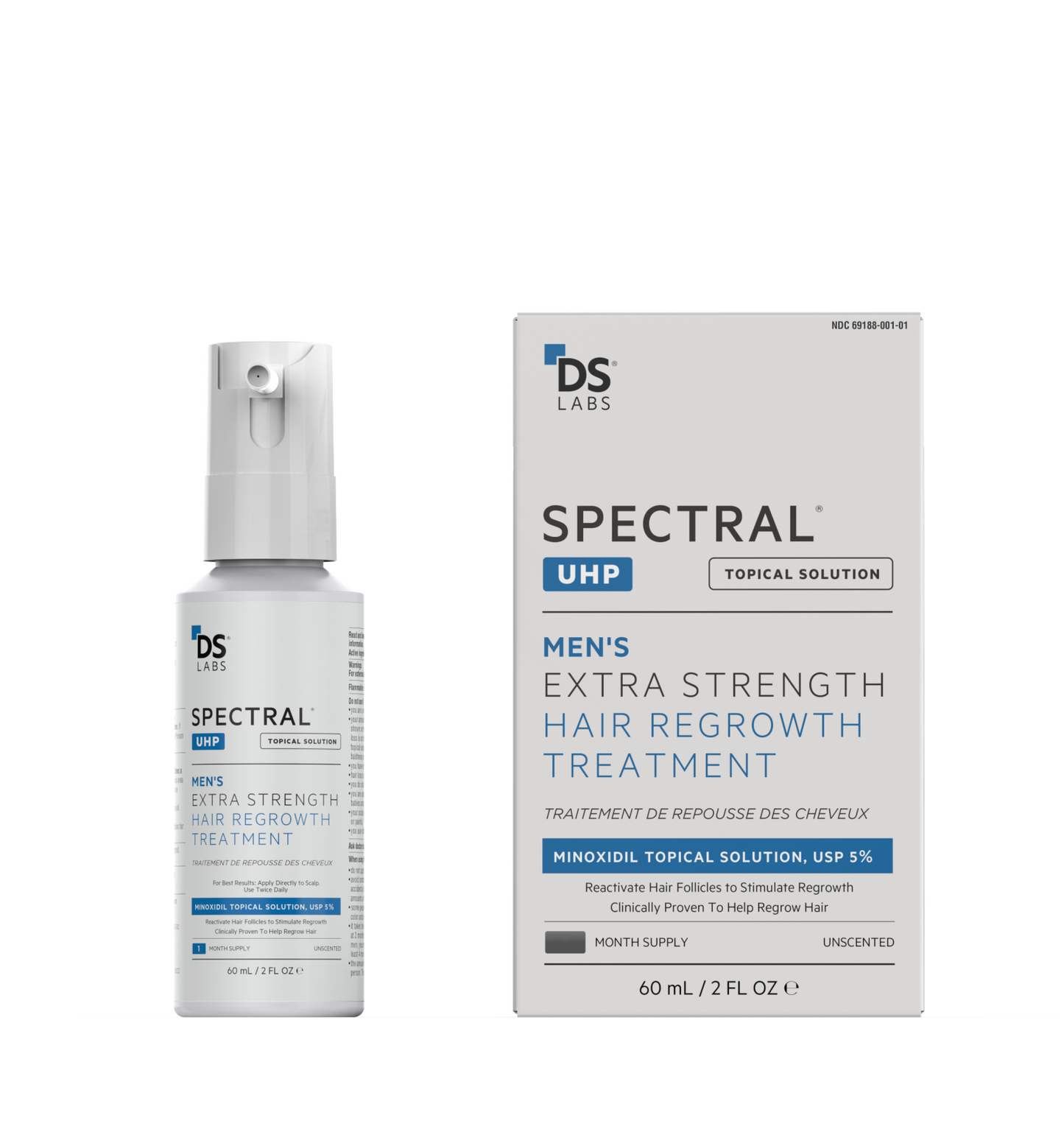Is your significant other pregnant? Well, congratulations are in order!
Pregnancy— or the art of birthing a fully-grown human baby— is a magical process, and your wife’s hair will probably improve throughout the process. You, on the other hand, might be recommended to discontinue the hair loss medication you’re on because it might affect or cause serious harm to the developing baby.
Why is that? To understand that precautionary measure, you must first:
Be Familiar With the Effect of Minoxidil on Pregnant and Nursing Women
When a woman is pregnant, there are several considerations she has to keep in mind to maintain overall health — which also includes the health of her tresses.
So, if you’re pregnant and using medications like minoxidil, it’s time to stop all use.
Medications like minoxidil are unsafe for women during pregnancy. The Food and Drug Administration (FDA) has given the topical drug a category C rating. This indicates that animal studies have shown a risk of harmful effects on the developing fetus. Most of these effects could be reversible, but the extent is unknown.
While there are no controlled studies on pregnant women, a case report on a 28-year-old woman did show that topically applied minoxidil could cause fetal malformations. A routine ultrasound test recorded significant brain, heart, and vascular defects in the fetus, which is why the pregnancy had to be interrupted.
Another study reported a 2-month postpartum mother taking 5 mg of oral minoxidil twice a day. No hypertrichosis or abnormalities were seen in the infant whose mother was taking minoxidil during pregnancy and for 2 months after the baby was born.
However, another infant who was born 4 weeks preterm did develop facial hypertrichosis. The infant appeared normal at birth for up to 2 weeks but had significant black hair on its forehead at 2 months of age. The infant lost its hair once the mother stopped using minoxidil, which was at the age of 6 months.
This shows that oral minoxidil has more risk for the fetus than topical minoxidil. Further studies on minoxidil-induced toxicity are needed to attest to these effects.
That said, it would be wise to err on the side of caution and avoid using it when you’re pregnant or planning to get pregnant. For more information on how to use the treatment after you have the baby, consult your physician for a case-by-case assessment. Remember, it’s better to be safe than sorry.
Moving on — can men and women use it around someone pregnant? Will there be any risks involved if you do? Let’s find out.
Can You Use Minoxidil If You’re Around Someone Pregnant?
Current studies did not highlight any reason why men or women shouldn’t use minoxidil if they’re around their pregnant partners. This shows that the drug is perfectly safe for use by those who are not pregnant or lactating.
Any transfer, however theoretical, from a man to a woman who’s pregnant or has child-bearing potential is minimal to the point of being negligible.
Hence, applying the medication when you’re around someone pregnant won’t harm the baby. It also won’t make the baby more susceptible to the risk of side effects. Just make sure you don’t share it with the pregnant woman in question due to possible risk factors for the fetus.
In Conclusion:
Yes, you can use minoxidil around someone pregnant.
The drug is only absorbed through the skin or secreted in breast milk when it’s absorbed systemically. So, anyone who’s not pregnant or nursing can use it to treat their hair loss and prevent losing more hair strands than they have already.















